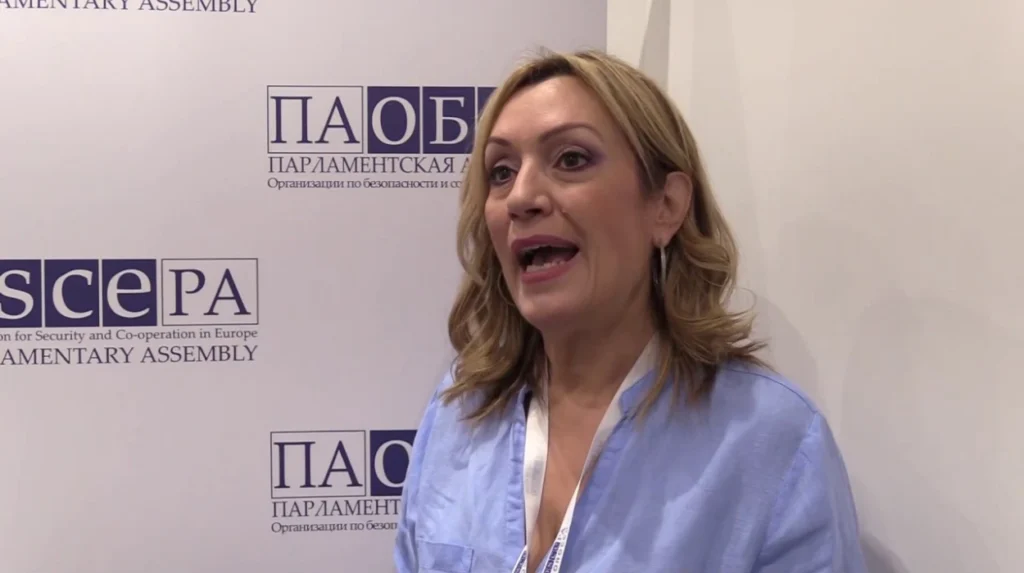The Organization for Security and Co-operation in Europe Parliamentary Assembly (OSCE PA) Special Representative on Anti-Corruption, Andreas Charalambides, underscored critical strategies and challenges in combating corruption during a high-level meeting with the European Union Network of Anti-Corruption Authorities (EUACA) held in Brussels. His address reflected the urgency and complexity of coordinating multi-national efforts to enhance transparency, accountability, and governance reforms across the OSCE region.
Strengthening the Fight Against Corruption in Europe
Corruption remains a pernicious threat to political stability, economic development, and public trust across Europe and beyond. Charalambides began his intervention by emphasizing the OSCE PA’s commitment to reinforcing anti-corruption frameworks through continued dialogue and cross-border cooperation. He highlighted that the volatility of current geopolitical dynamics further underscores the necessity for robust, independent institutions dedicated to rooting out corrupt practices.
“Corruption threatens the very foundations of democracy. It erodes citizens’ trust and drains resources needed for essential services,”
stated Charalambides, stressing that confronting corruption is pivotal not only to governance but also to regional security.
The Brussels event convened senior representatives from EU member states, candidate countries, and OSCE participating States. It focused on sharing best practices and fostering partnerships among national anti-corruption authorities, law enforcement, judiciary bodies, and civil society organizations.
Coordinated Action and Institutional Challenges
During the sessions, Charalambides underscored that no single country can effectively address corruption in isolation. Instead, he advocated for enhanced operational collaboration that transcends political and jurisdictional boundaries. He pointed to emerging trends, such as digital corruption risks involving illicit financial flows through cryptocurrencies and tech-enabled money laundering, which require coordinated international responses.
Adding to the complexity are challenges related to ensuring the independence and adequate resourcing of anti-corruption bodies. In many countries, political interference and insufficient budgets undermine effective investigations and prosecutions.
“Without strong, independent institutions, our efforts remain fragmented and vulnerable to setbacks,”
Charalambides warned, urging governments to prioritize institutional reforms that guarantee autonomy and capacity.
EUACA members discussed recent legislative and enforcement developments, focusing on improving transparency in public procurement, integrating asset declaration systems, and bolstering whistleblower protections. Charalambides also highlighted how the OSCE PA promotes parliamentary oversight as a vital mechanism to hold governments accountable.
Emphasizing Preventive Measures and Public Engagement
Beyond enforcement, Charalambides stressed the importance of prevention through education, transparency, and civic participation. He cited several OSCE PA projects aimed at raising public awareness, particularly targeting youth and vulnerable groups most affected by corruption’s social repercussions.
“Empowering citizens to demand accountability and resist corrupt practices is equally critical as legal measures,”
he remarked, noting the rise of civic activism and digital platforms enabling whistleblowing and real-time reporting.
The Special Representative also called attention to intersectional approaches that address gender-related corruption risks. He highlighted that corruption disproportionately harms women, deepening inequalities and limiting access to justice and services.
Addressing Cross-Border Corruption and Global Trends
Charalambides’ intervention covered the challenges inherent in tackling transnational corruption networks that exploit weak governance zones. He emphasized close cooperation with international organizations such as the United Nations, the Financial Action Task Force (FATF), and INTERPOL to monitor illicit financial flows and freeze criminal assets.
In addition to these partnerships, OSCE PA initiatives focus on harmonizing anti-corruption standards and facilitating information sharing across borders to dismantle complex criminal enterprises.
“Fighting corruption is a collective responsibility. We must synchronize our legal frameworks and tools to close loopholes exploited by corrupt actors,”
he stressed.
The Role of Parliamentary Assemblies and Democratic Institutions
Highlighting the OSCE PA’s unique role, Charalambides pointed out the power of parliamentary assemblies in driving forward anti-corruption reforms. Through its network of legislators, the OSCE PA advocates for legislative transparency, supporting peer reviews and promoting compliance with international anti-corruption conventions.
He identified this bottom-up approach as a complement to executive-led initiatives.
“Parliaments act as watchdogs, ensuring governments implement the necessary reforms and sustain political will over time,”
he emphasized.
The OSCE PA’s engagement also includes capacity-building workshops and exchange programs aimed at enhancing lawmakers’ knowledge on investigating corruption and promoting integrity in public service.
Political Will and Future Directions
Concluding his remarks, Charalambides called for renewed political will at all levels to translate commitments into tangible actions. He urged EU and OSCE member states to adopt a zero-tolerance stance on corruption, backed by transparent monitoring and accountability mechanisms.
“Corruption undermines peace and development, but with determination and unity, we can build resilient, transparent societies,”
he asserted, signaling optimism for expanding cooperation under the OSCE PA’s mandate.
The Brussels gathering served as a timely reminder that while obstacles remain, collective efforts through forums like EUACA and OSCE PA foster the knowledge exchange and solidarity necessary to confront persistent corruption challenges in a rapidly evolving landscape.







